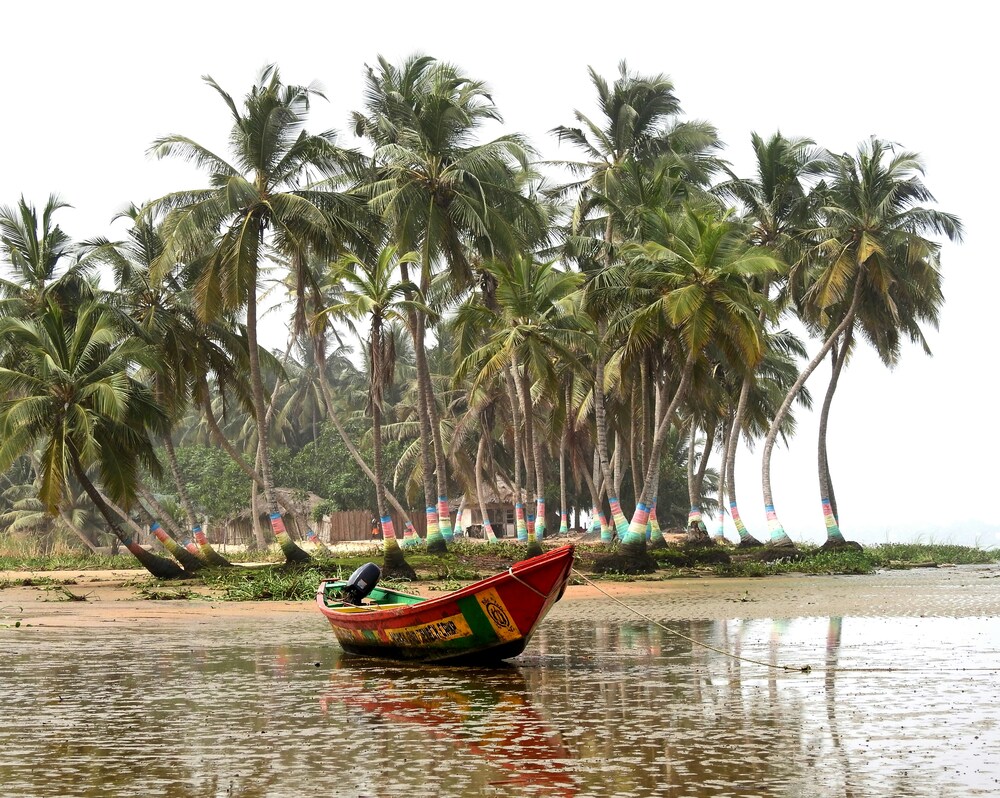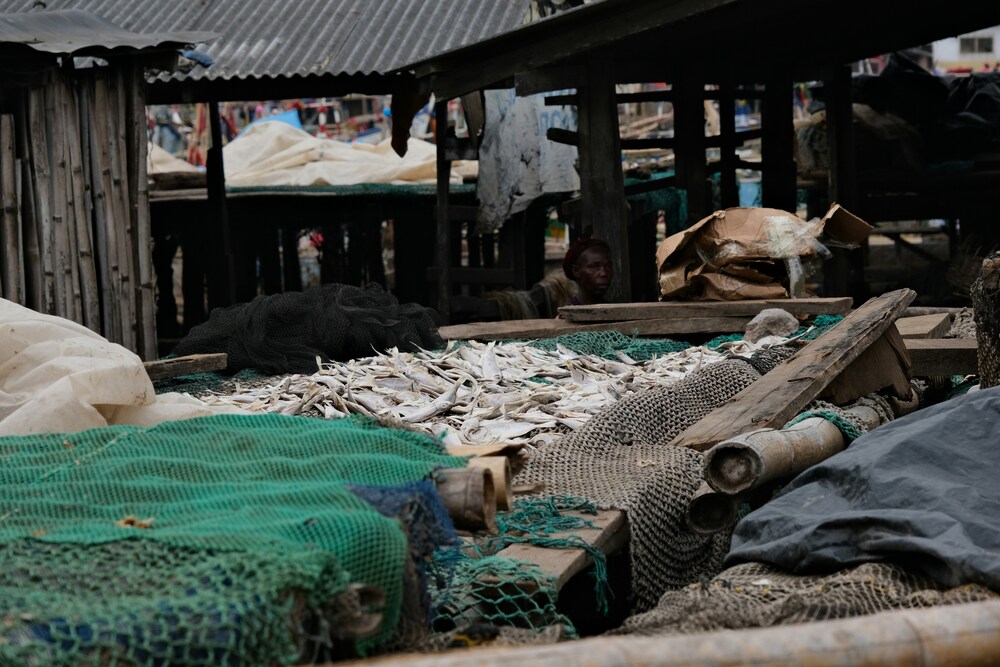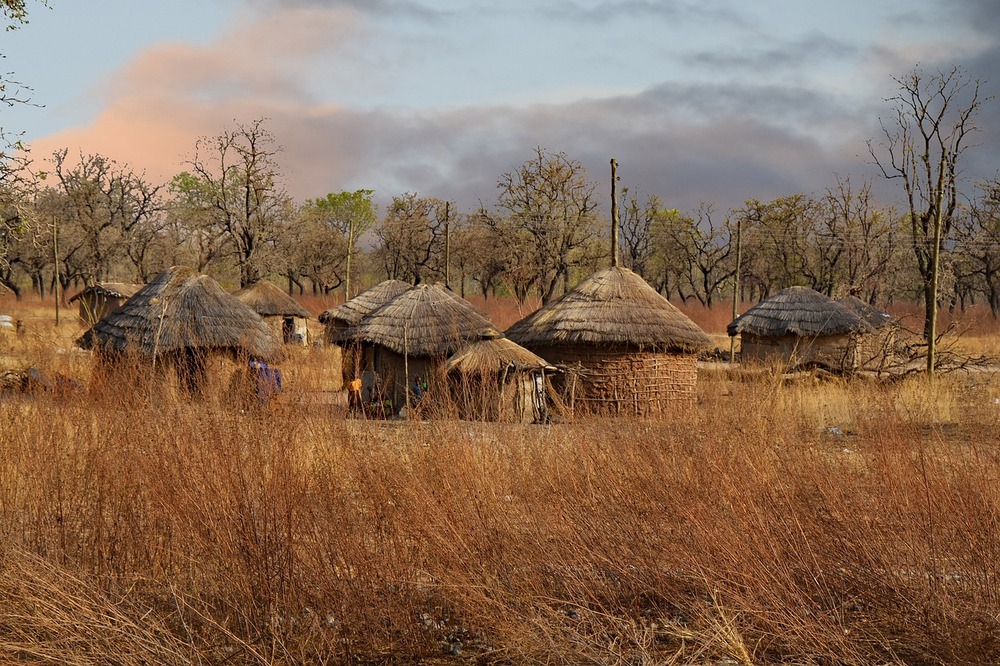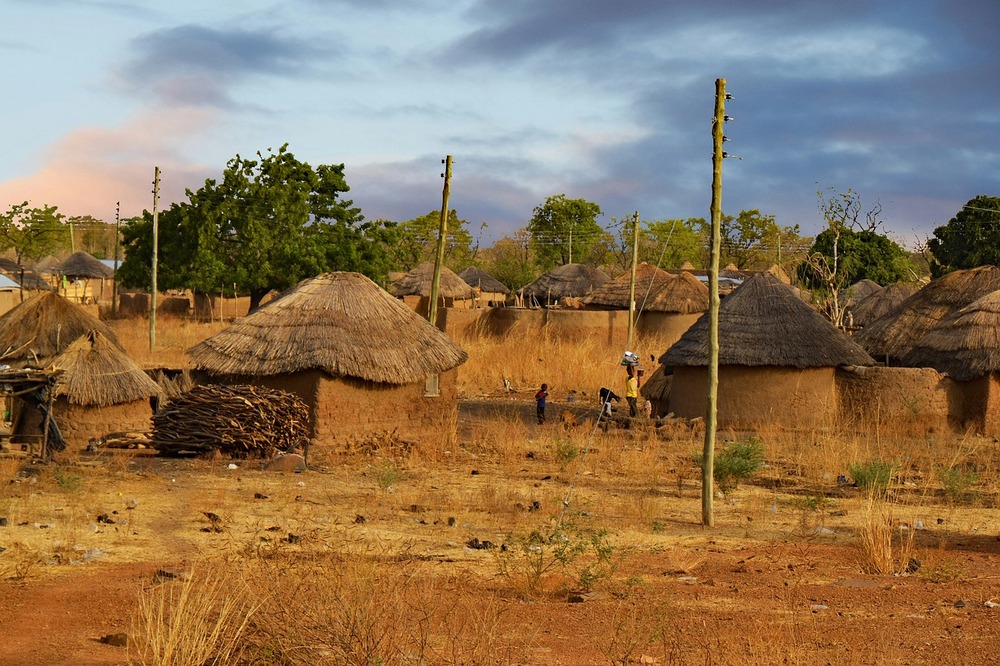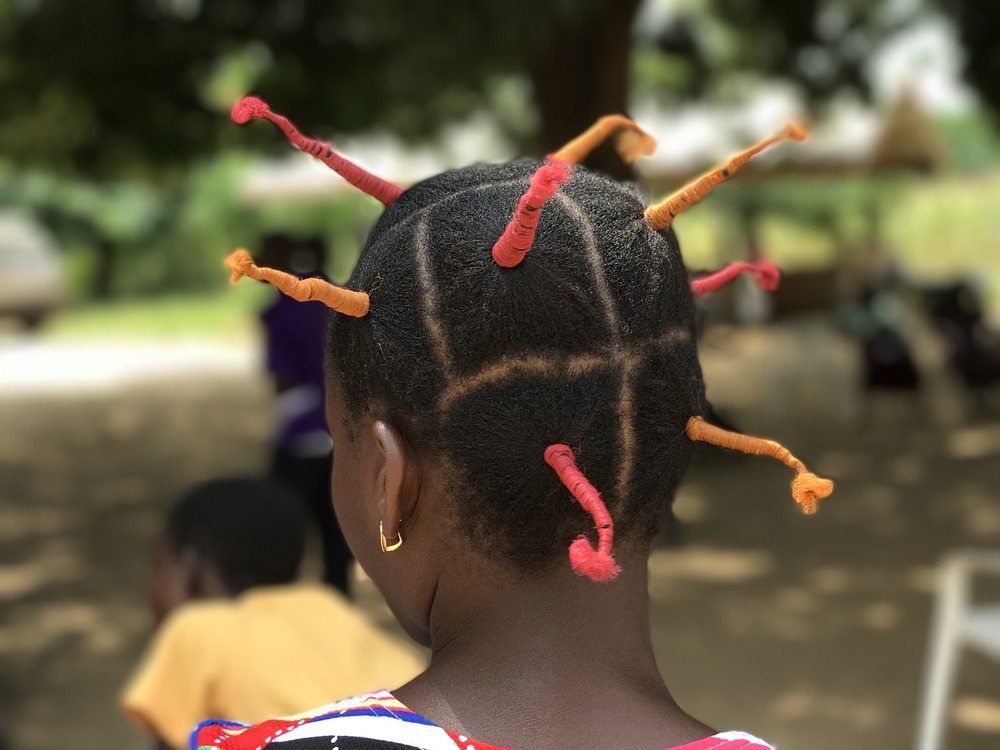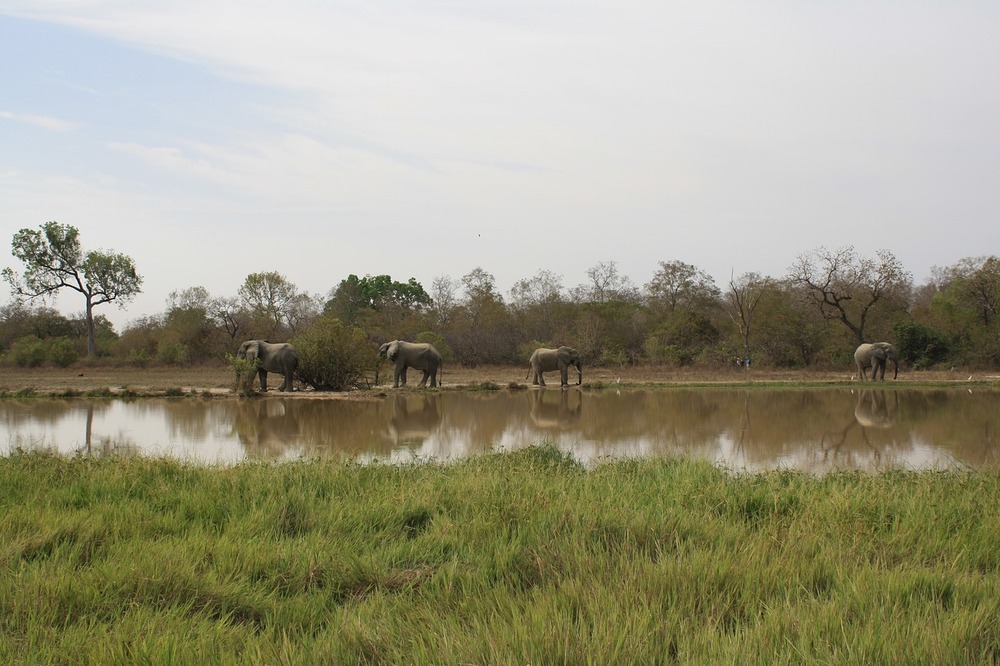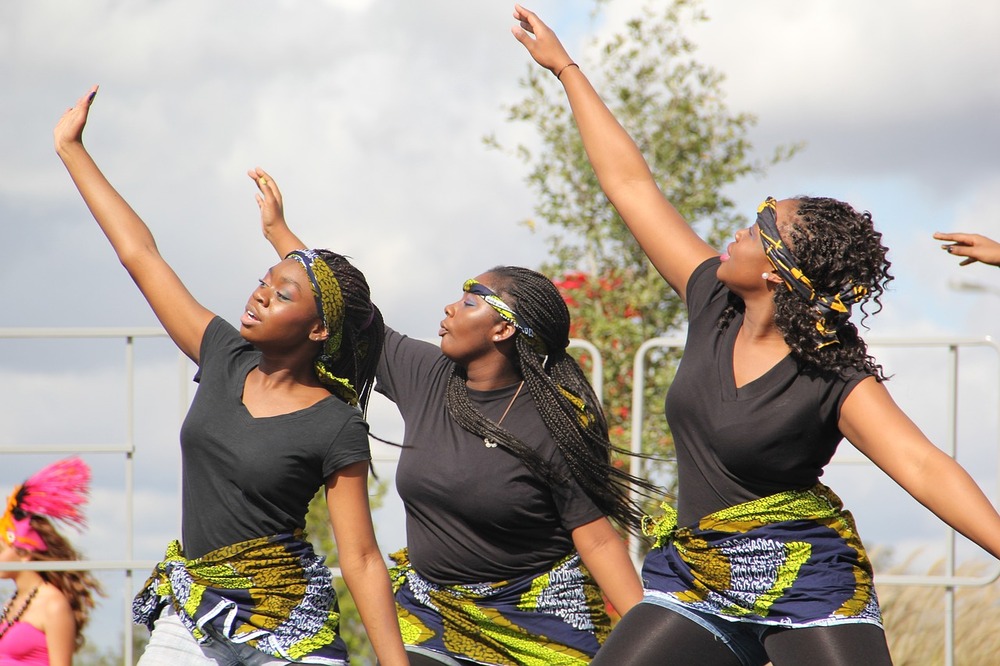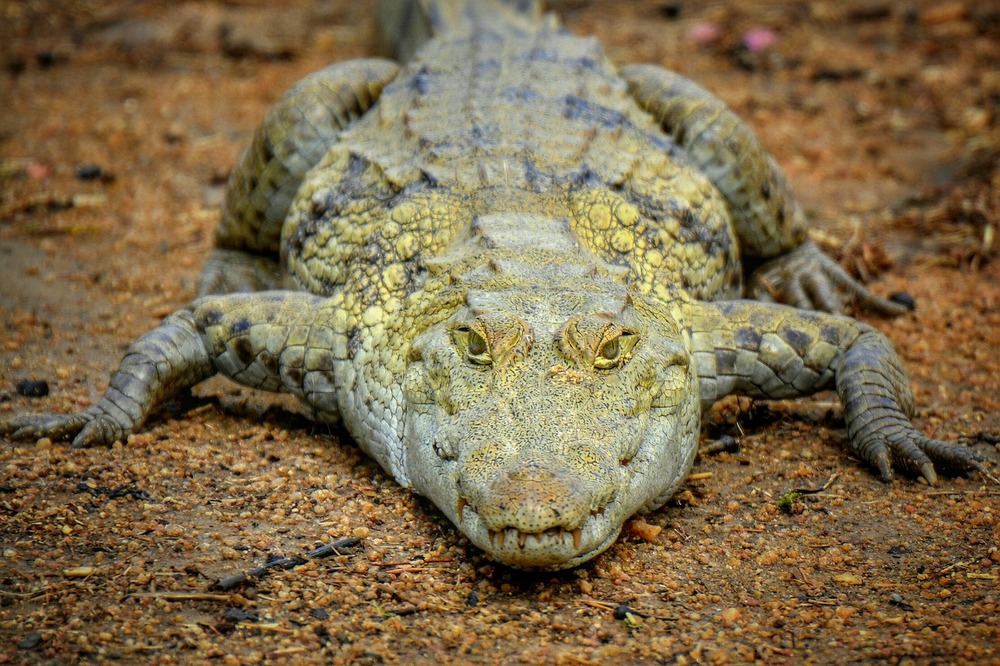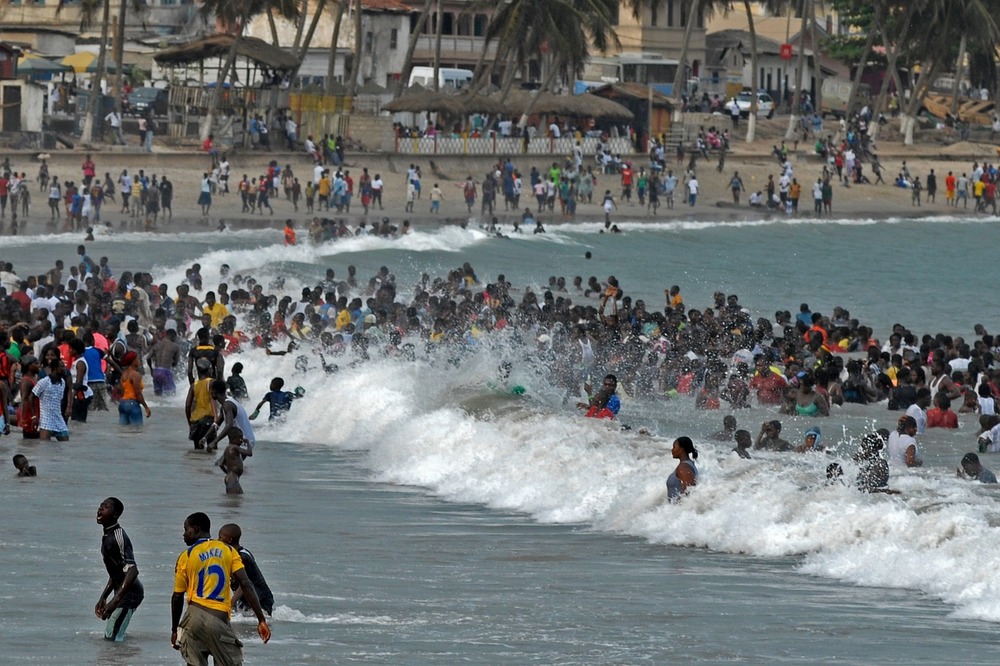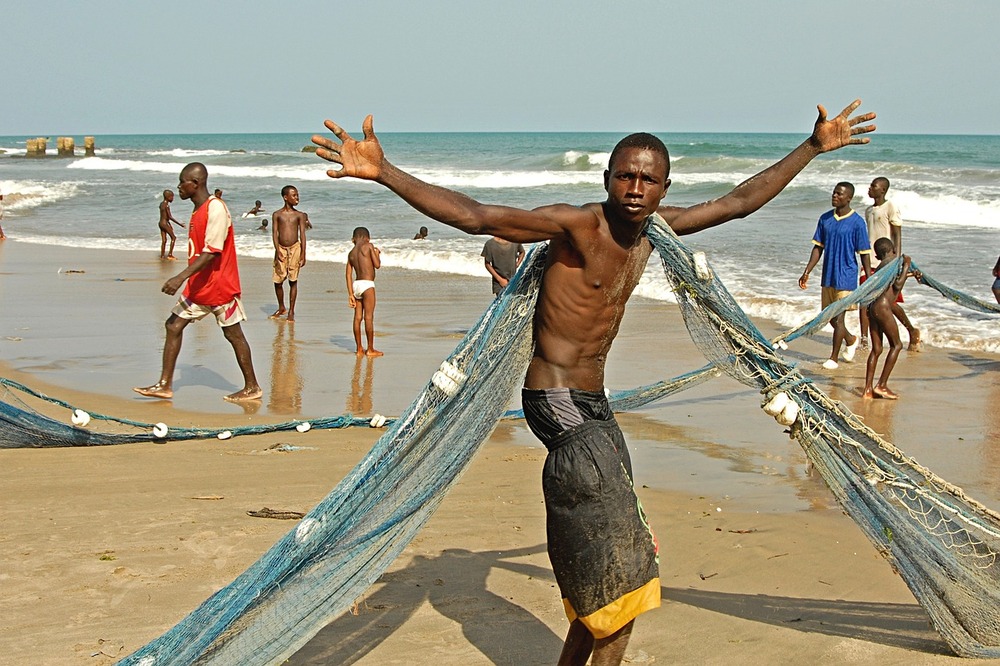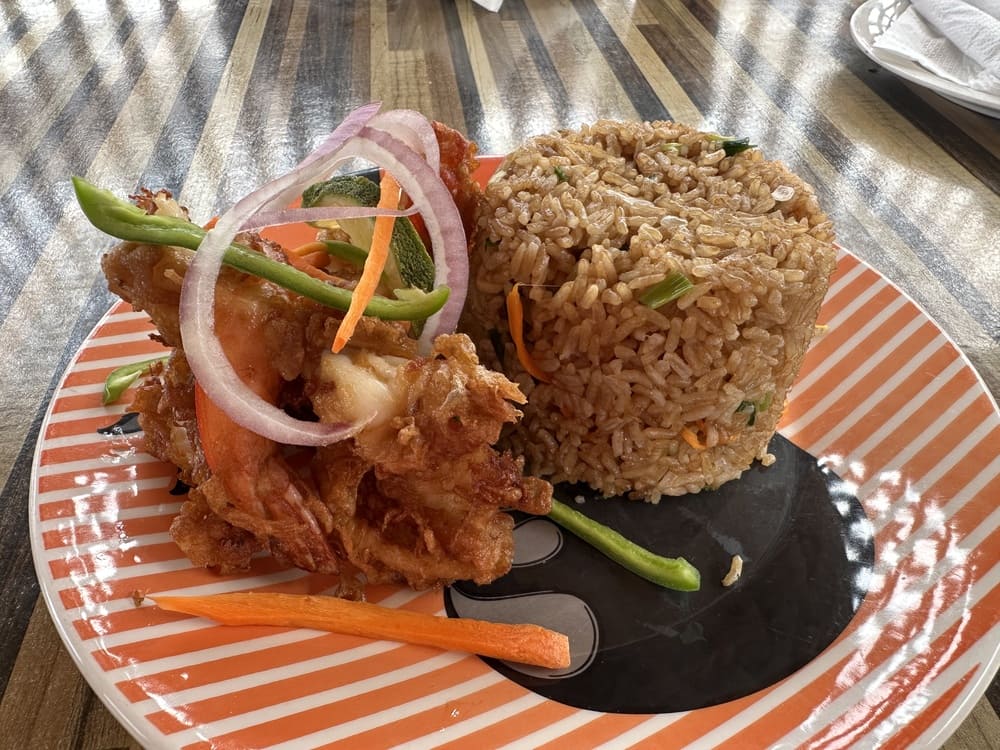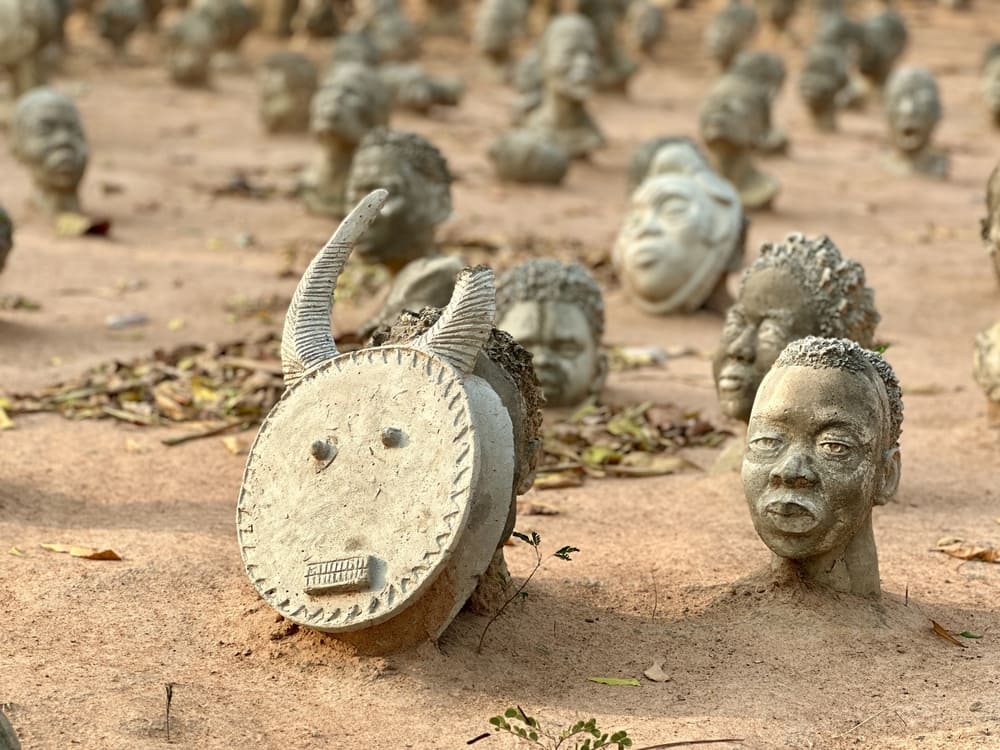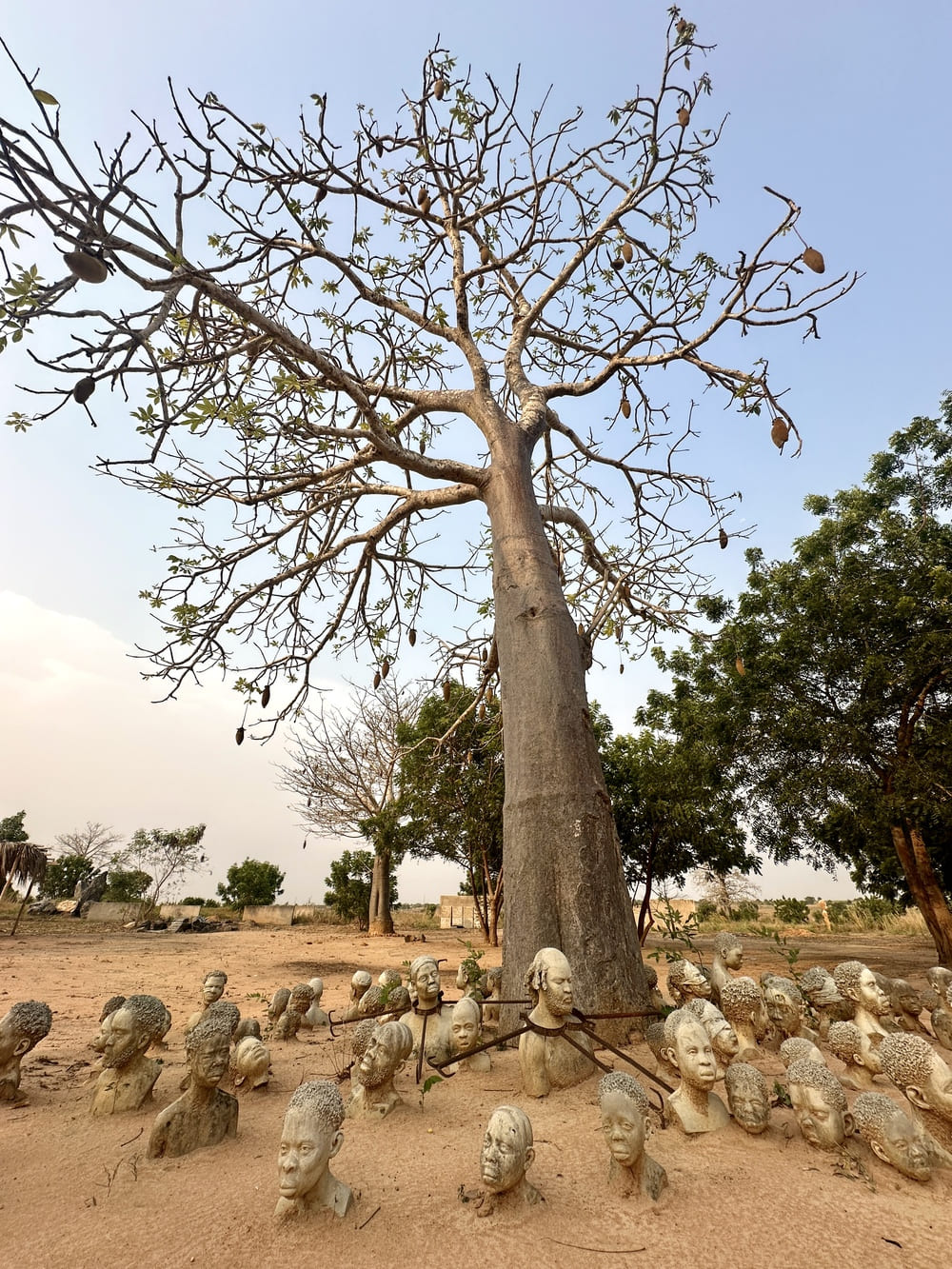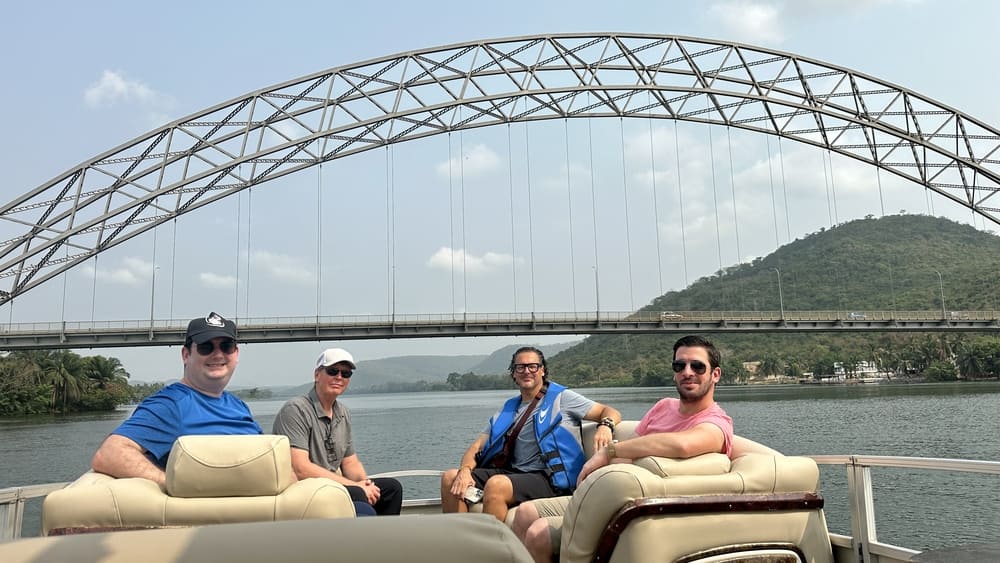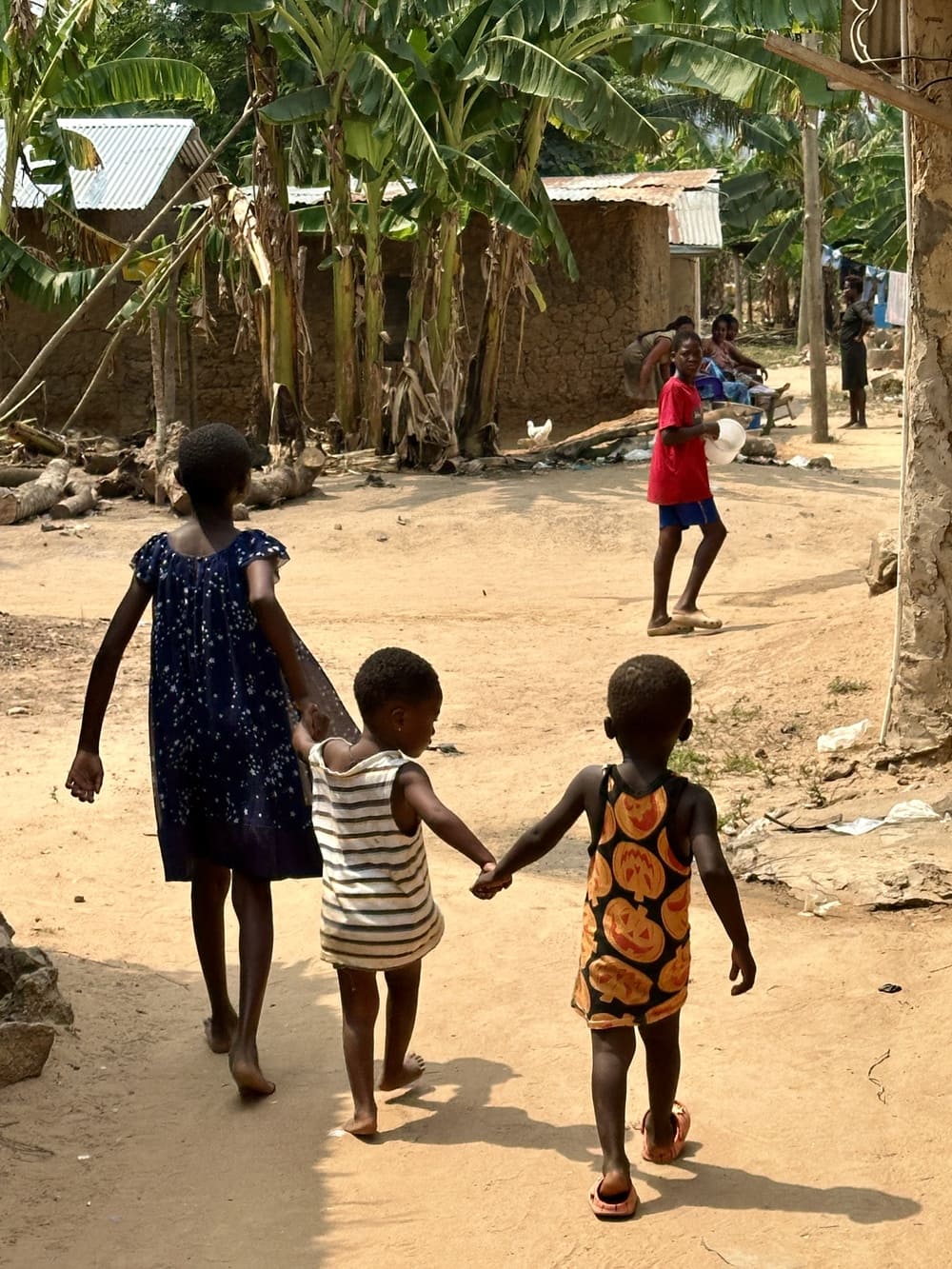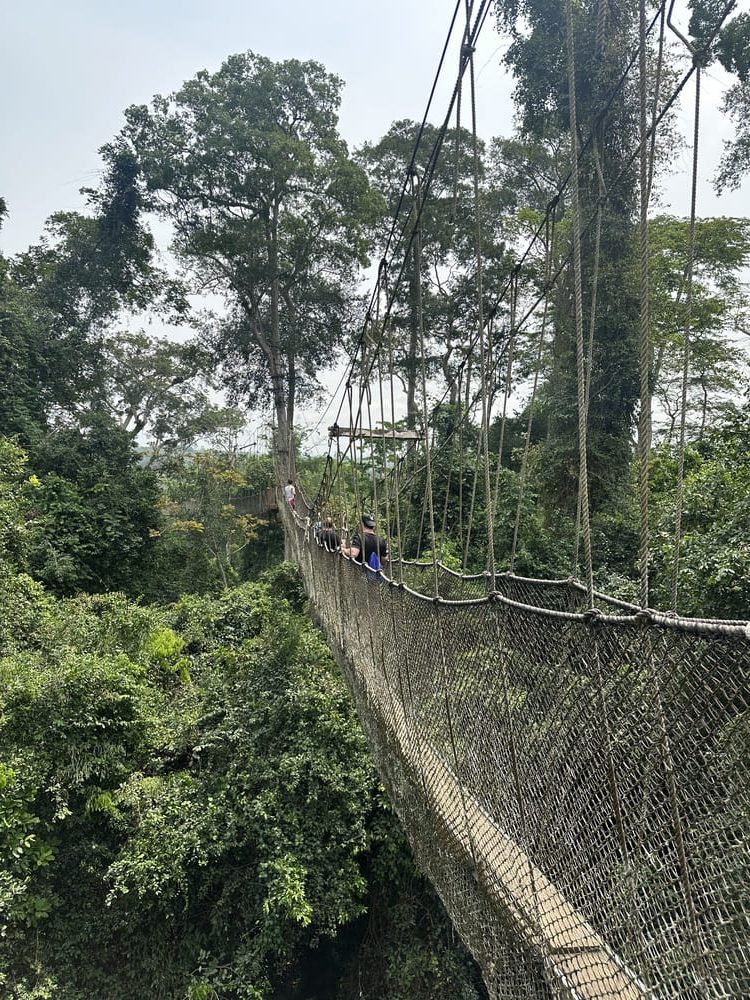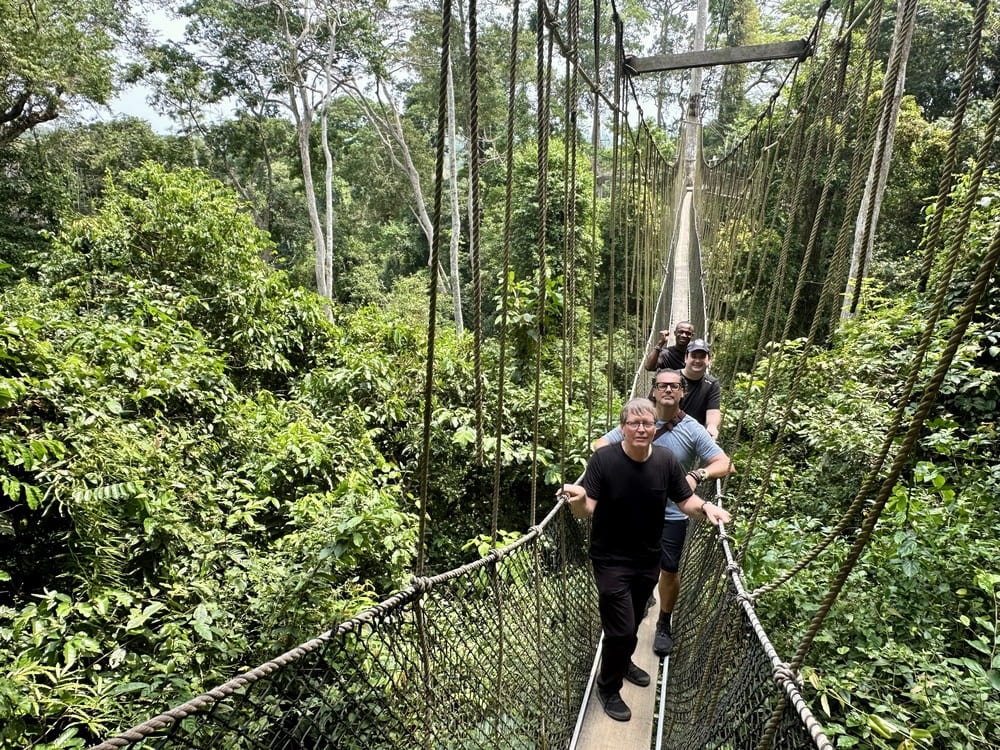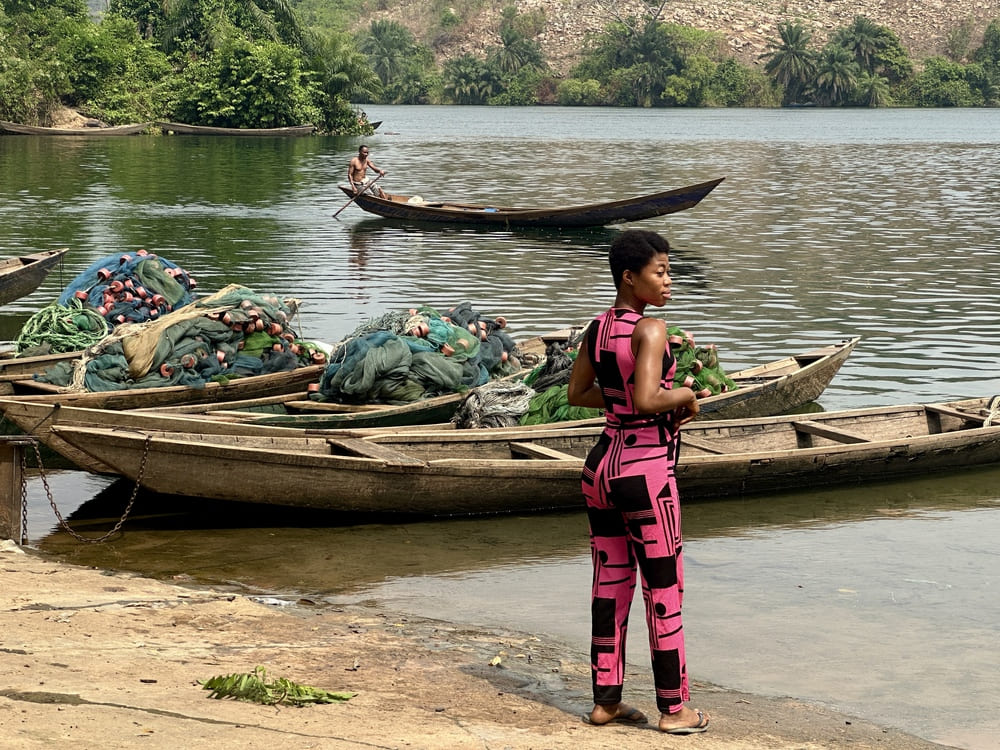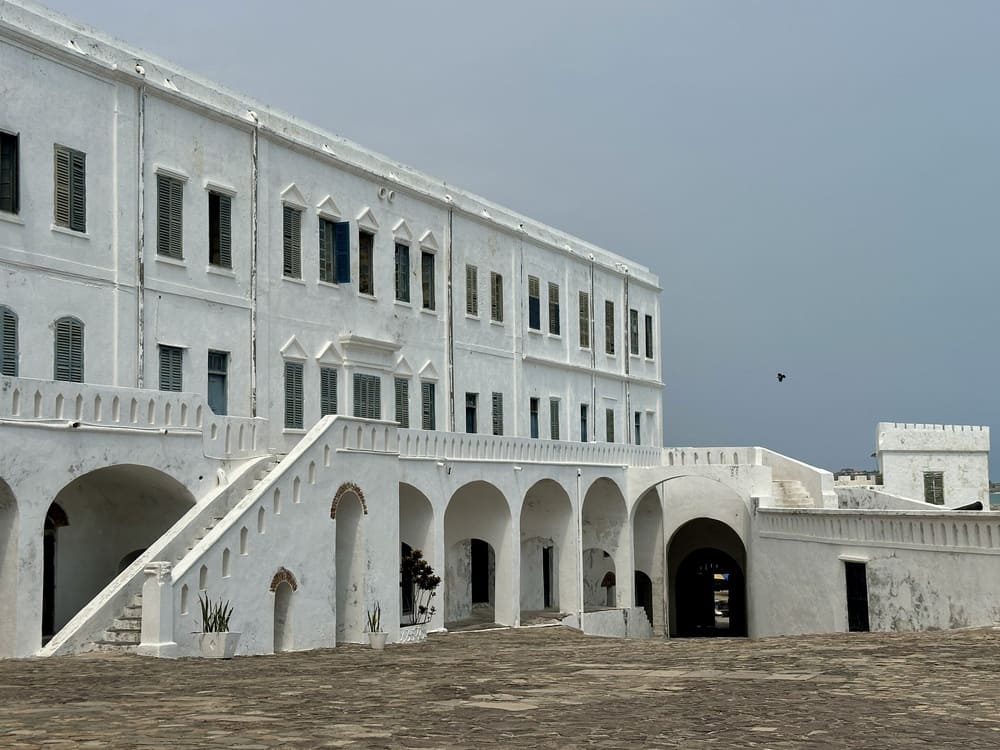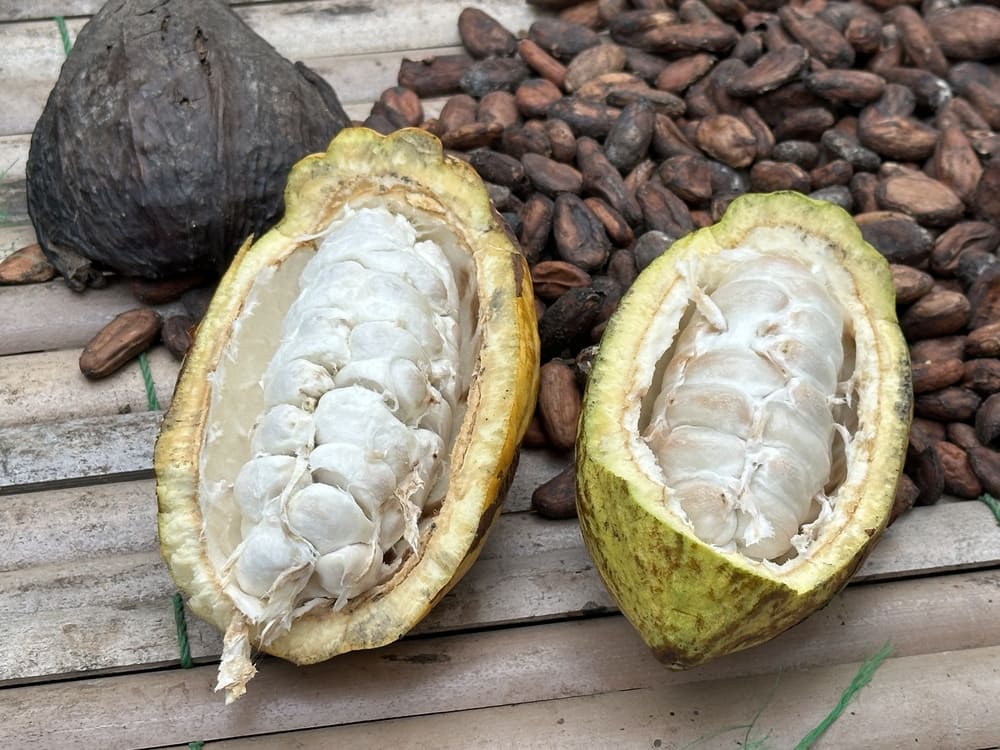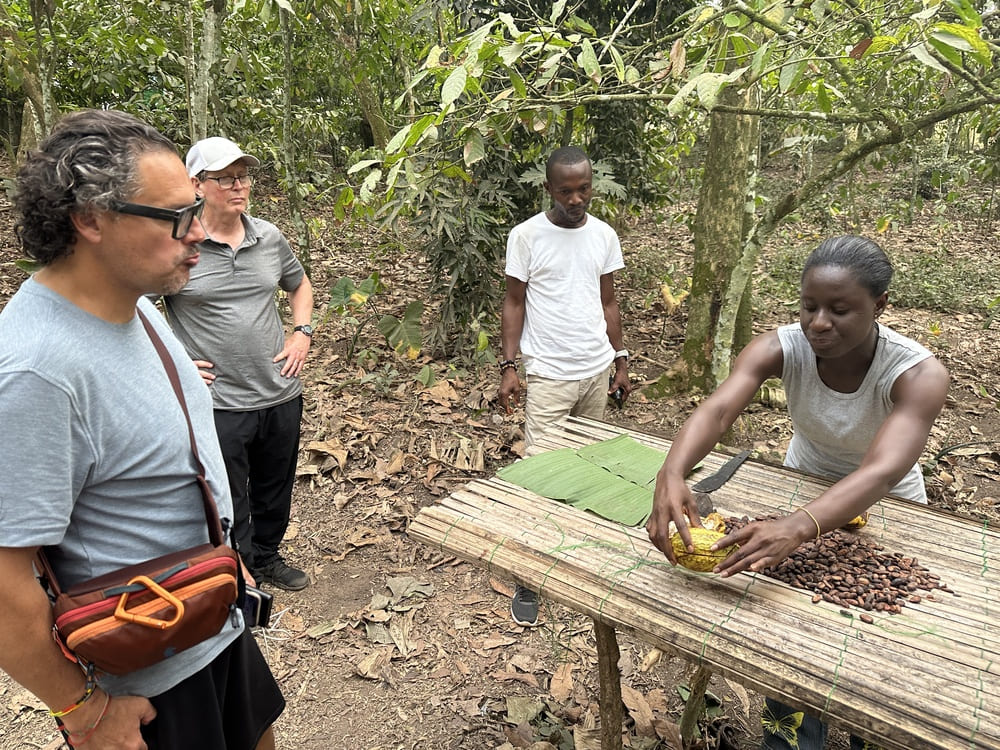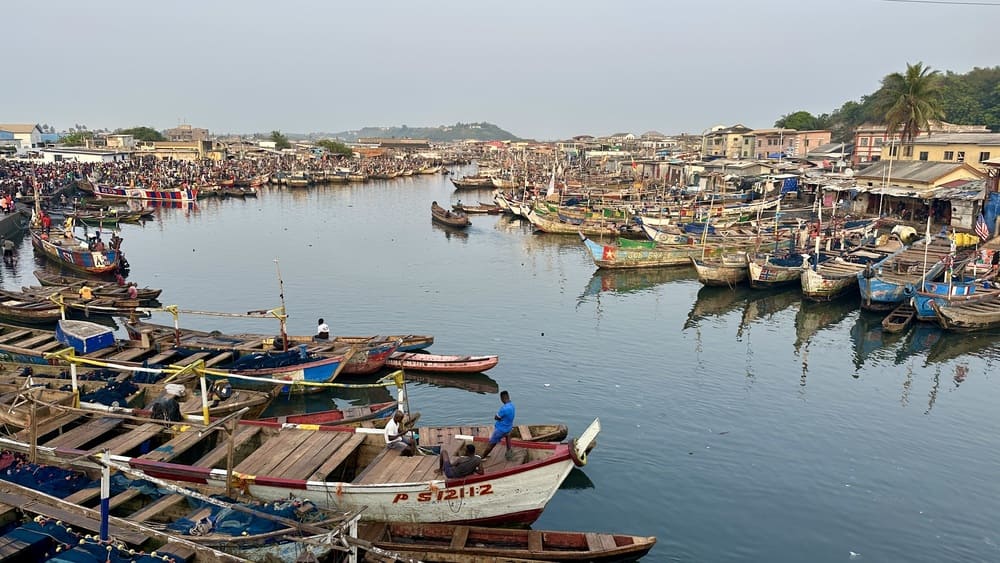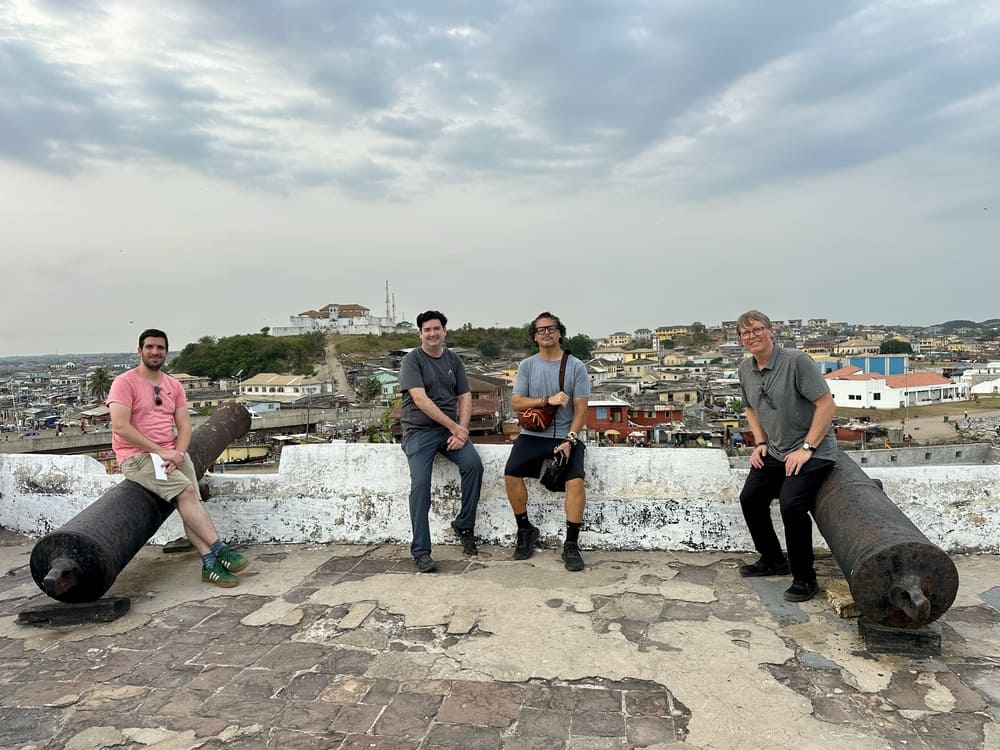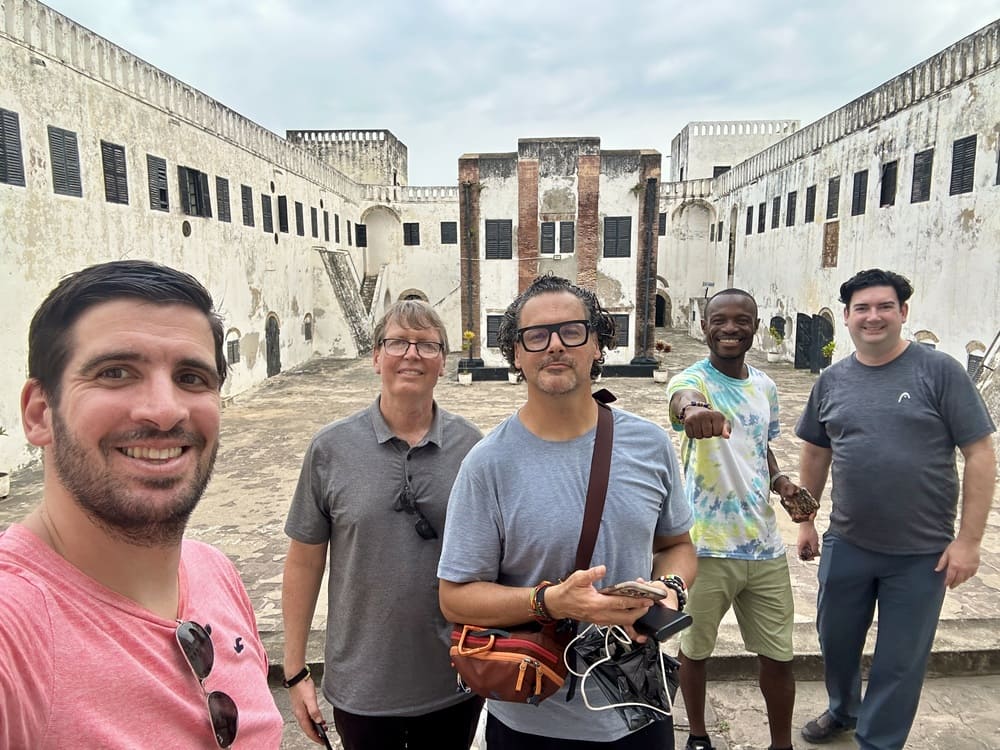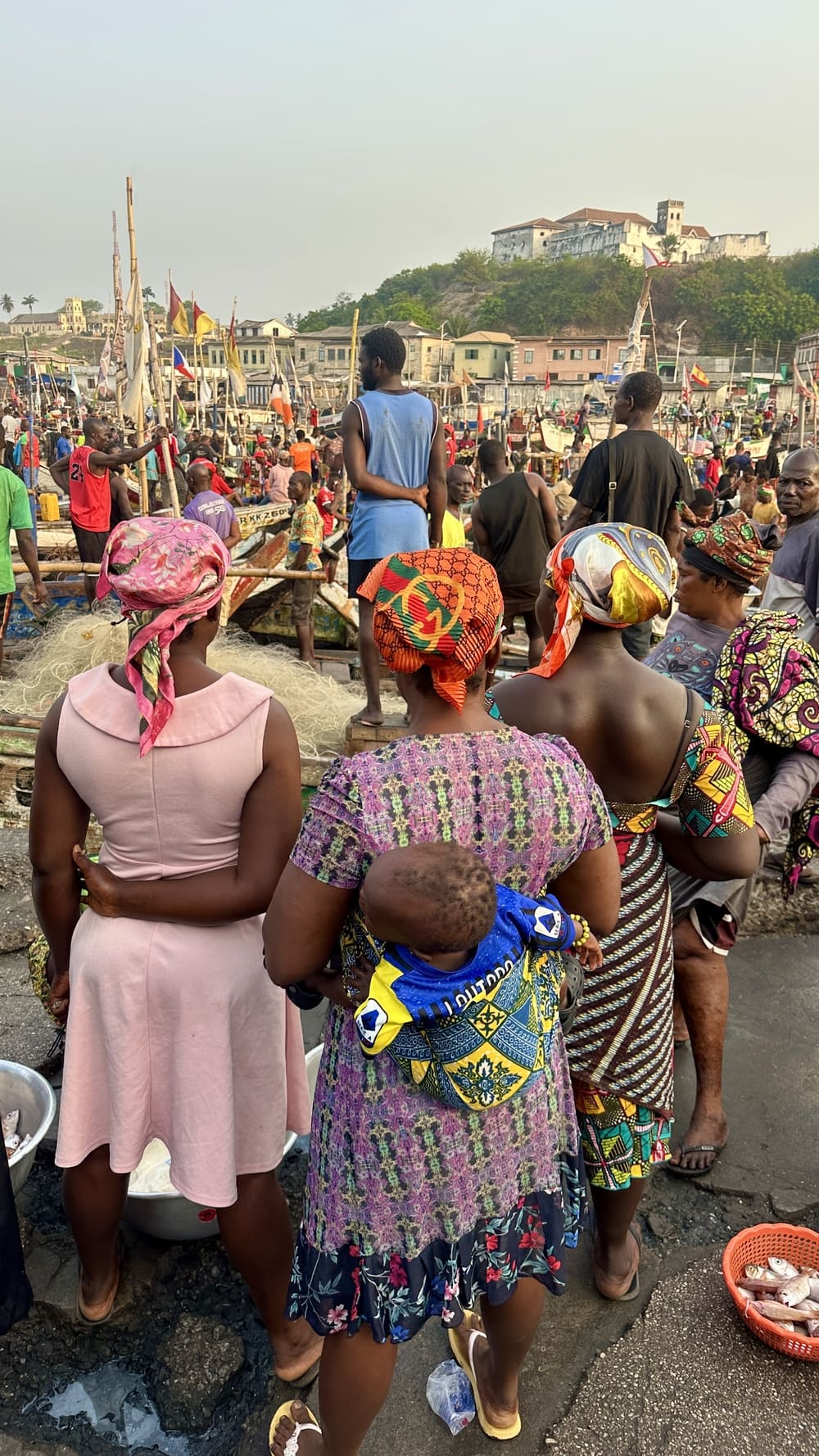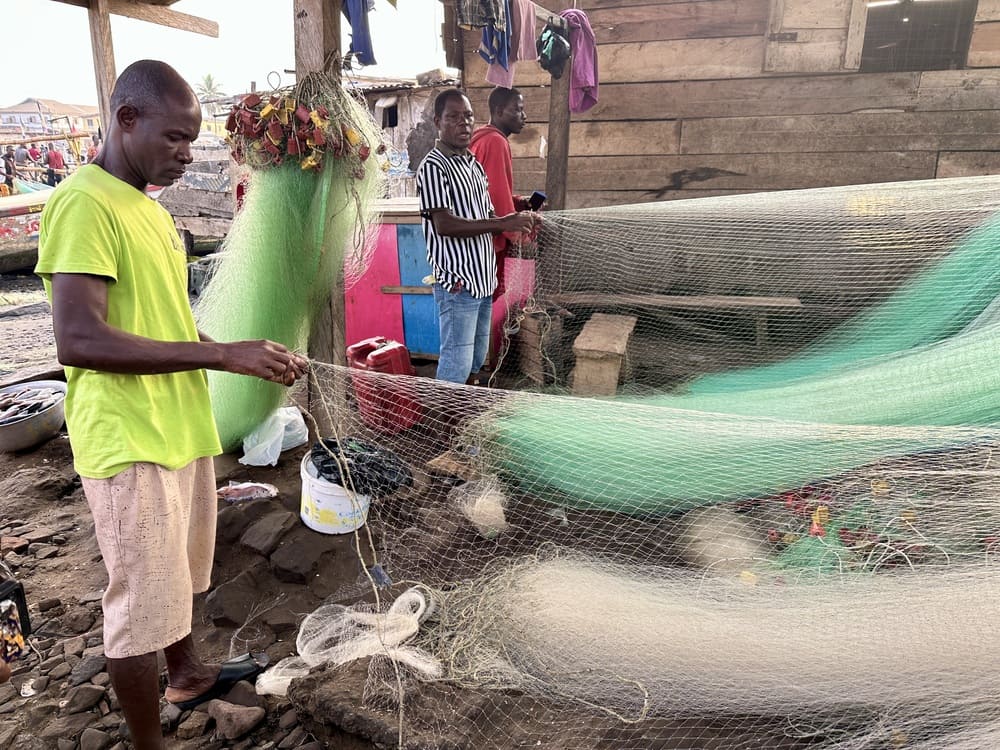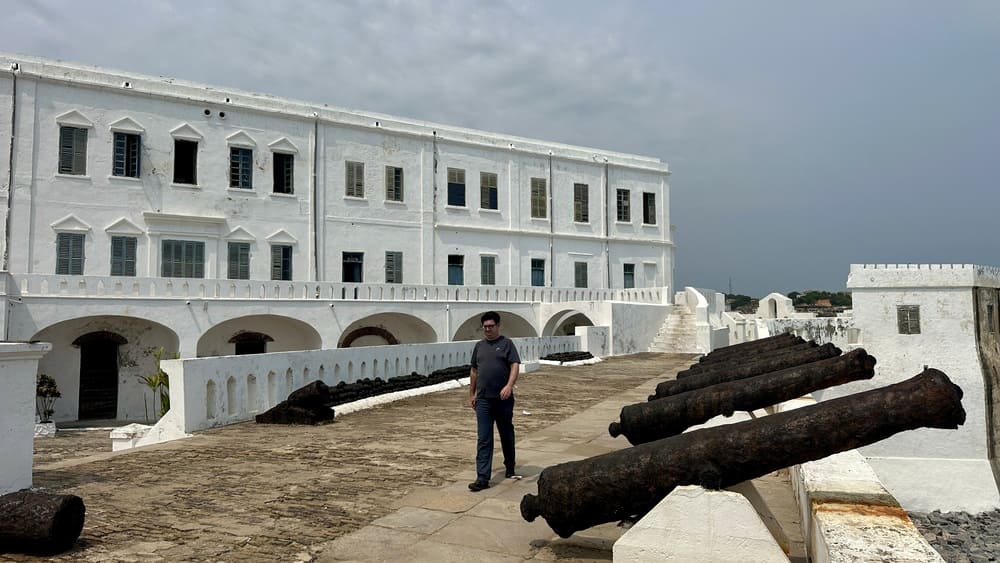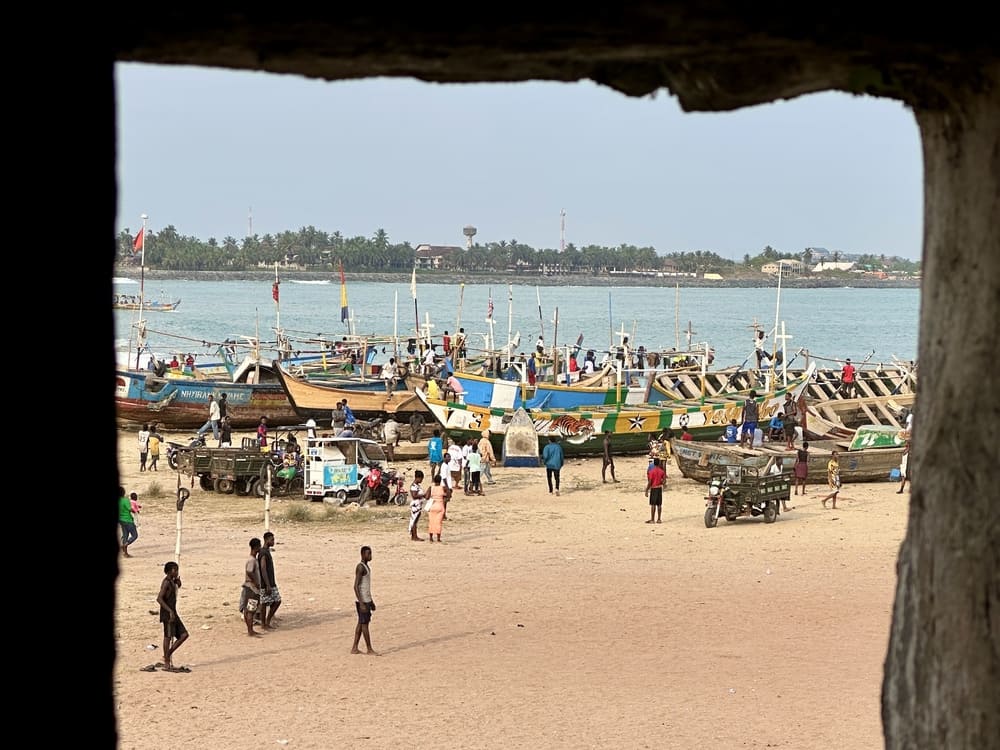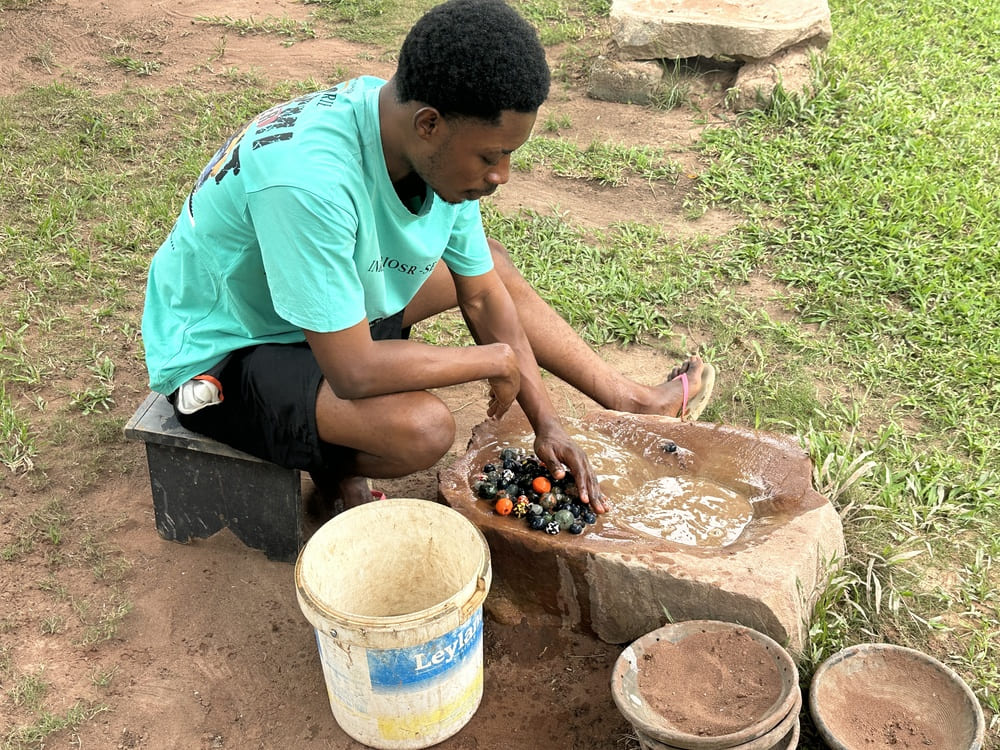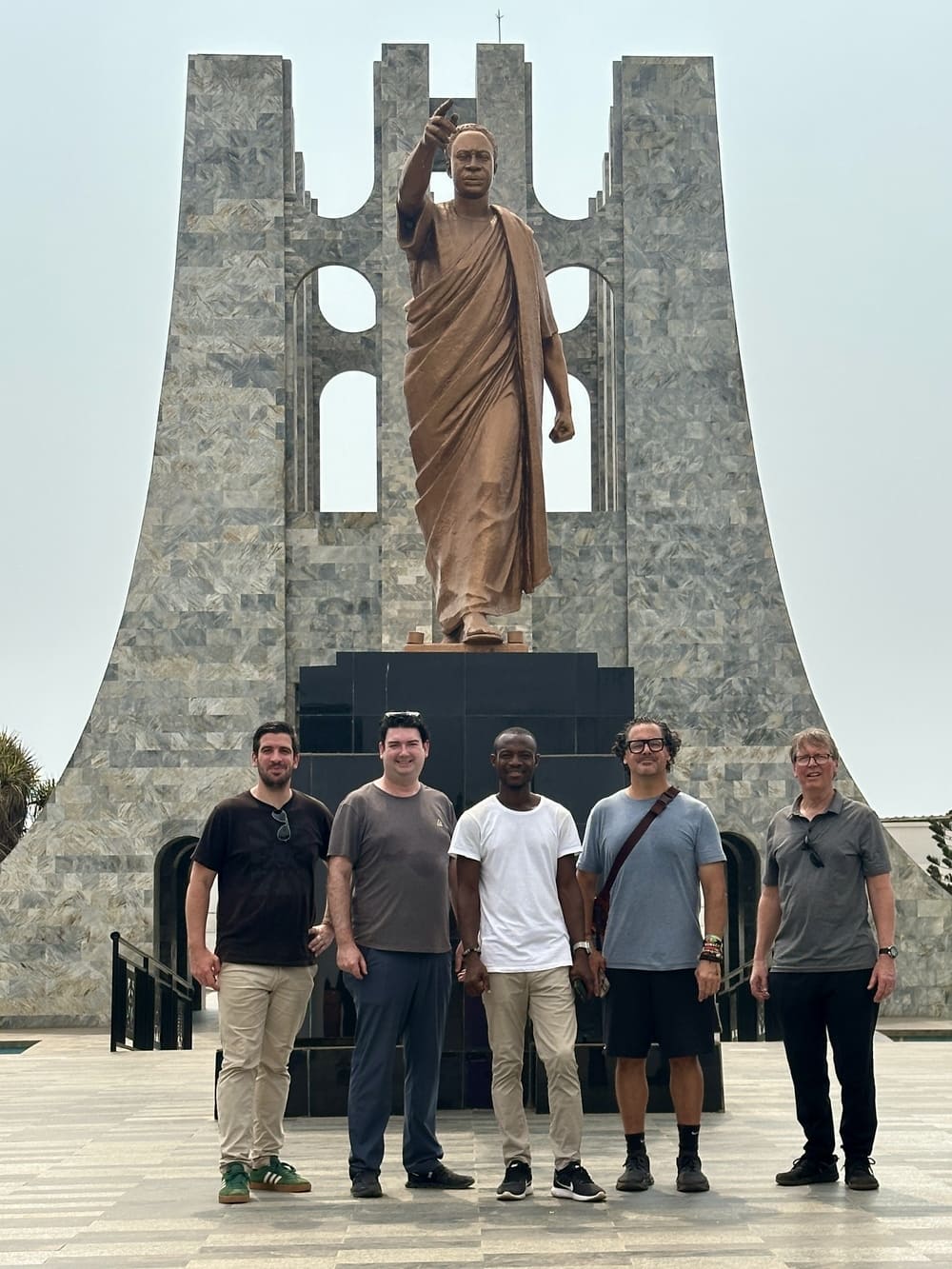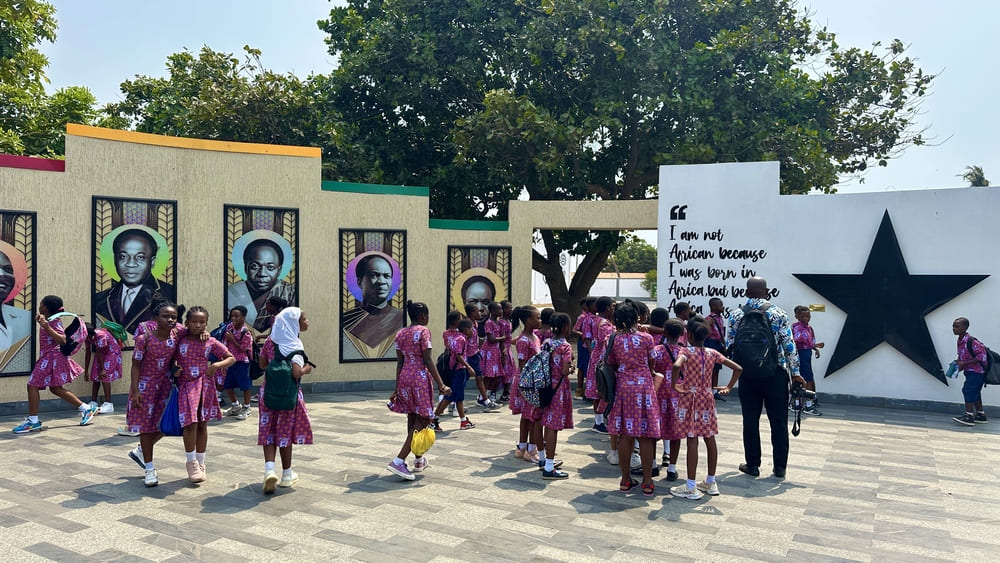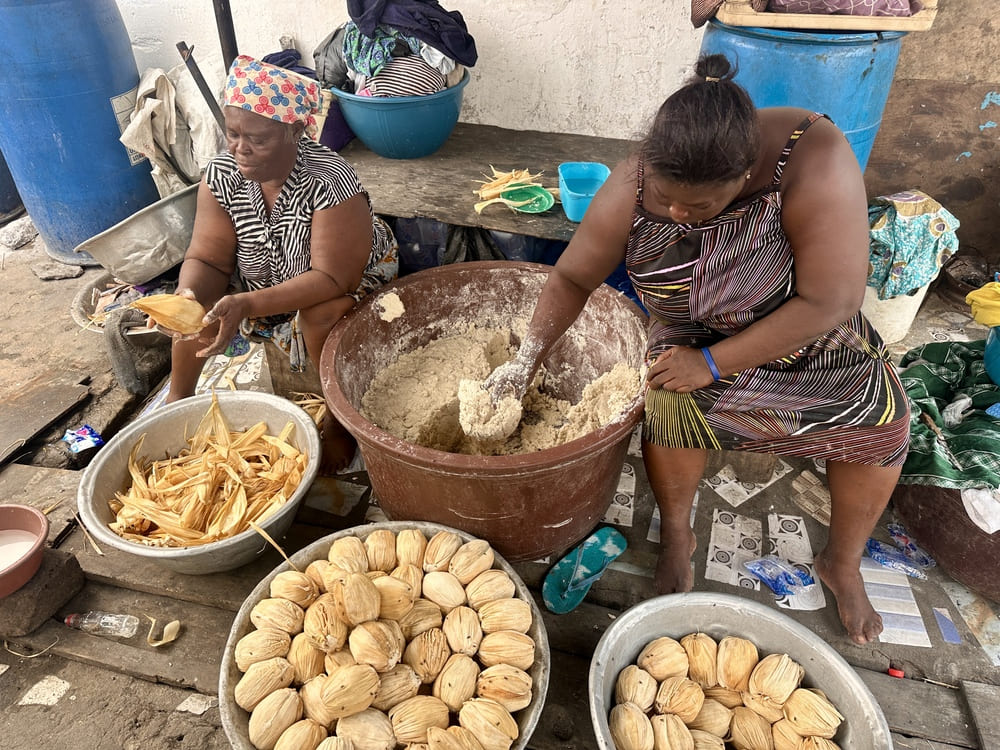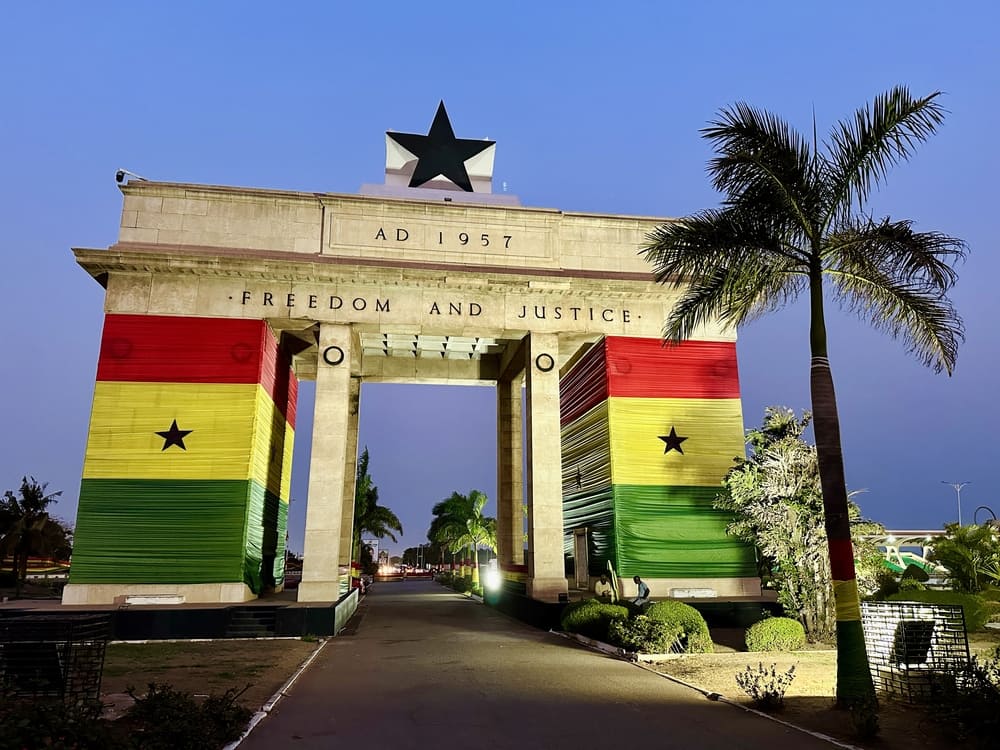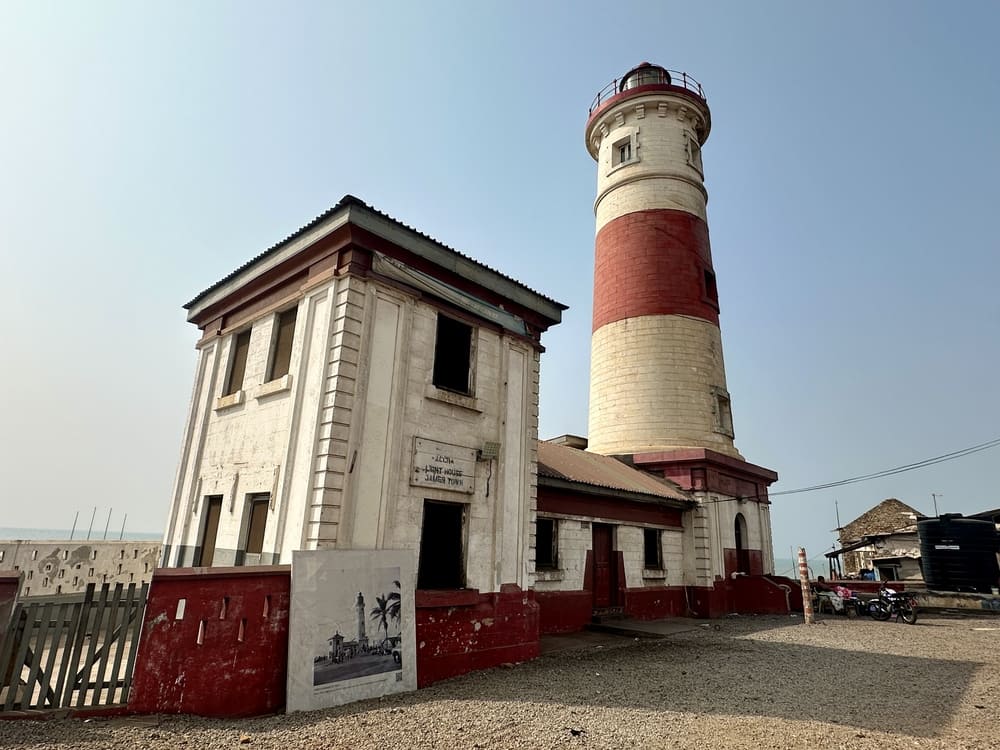YPT Tours to Ghana
YPT will offer Ghana tours from 2025, starting with the Ghana Gold Coast Tour.
Ghana, formerly known as the “Gold Coast” during British colonial times due to its abundant natural resources, became the first sub-Saharan African country to gain independence from a European power in 1957. Located in West Africa, Ghana boasts diverse landscapes that range from lush beaches to coastal savannahs and tropical rainforests, all within a land area similar in size to the UK. The vibrant capital city of Accra is a key hub of cultural and economic activity in the region.
Ghanaians are renowned for their warm hospitality, colourful festivals, and rich traditions. With a stable political environment, Ghana has made significant efforts to preserve its cultural heritage and promote tourism, making it an attractive destination, especially for first-time visitors to West Africa.
Group Tours to Ghana
Currently, you can travel with YPT to Ghana on our Ghana Gold Coast Tour!
Our Ghana Gold Coast Tour shows you the perfect combination of the country’s natural beauty, vibrant culture, and often tragic history. As a generally politically stable and English-speaking state, Ghana is the ideal place to experience “Africa in Miniature.” Throughout the tour, you’ll be moved by the resilience of the Ghanaian people as we visit the castles and memorials across the country that tell the tragedy of the transatlantic slave trade.
Ghana Gold Coast Tour – February 3rd – 8th, 2026 – €2495
Independent Tours to Ghana
If your availability does not align with the scheduled tour dates, then YPT can organize a private tour for you. We will plan according to your timeframe and budget and can even craft a bespoke itinerary based on your interests. Prices depend on the number of people and what level of accommodation you desire, but YPT can arrange everything you need for a perfect independent trip.
Independent Ghana tours can be done directly in the country, or combined with tours to Benin, Togo or any country where there are direct flights to.
Example of a Ghana Itinerary (8 days)
Day 1 – Arrive in Accra
- Welcome to Ghana! Kotoka International Airport serves as a hub for West Africa, and is well-connected to Europe, the rest of the continent, and even the United States!
- Transfer to the hotel and check-in, taking time to rest should you want to.
- Relax and explore nearby areas, possibly including some local produce markets or take a walk along the city’s Atlantic beaches.
- Have dinner at a local restaurant which specializes in hearty Ghanaian cuisine.
- Overnight in Accra
Day 2 – Accra
- Have a leisurely breakfast in your hotel, before starting to explore Ghana’s capital.
- Visit Independence Square with its Black Star Gate. This commemorates the country’s freedom from Britain in 1957, with the eternal flame being lit by the first President.
- Continue afterwards to the Kwame Nkrumah Memorial Park and Museum. As the country’s founding father, he was once voted as Africa’s “Man of the Millenium.” Here, you will learn why so many Ghanaians still view him in this way.
- Stop at a nearby café and enjoy lunch in one of the beautiful garden courtyards.
- Explore the vibrant Makola Market, perhaps picking up some of their famous embroidered fabric or wax prints.
- Go to the W.E.B. Du Bois Center, where the famous African-American activist spent the final years of his life. You can visit his grave and read some of his works in the library.
- Have dinner on Labadi Beach at one of the Lebanese restaurants there – they are one of the largest immigrant groups in Ghana, and many think they have the best food!
- If you still have energy, hang out and have drinks with the locals on the beach.
- Overnight in Accra.
Day 3 – Accra – Cape Coast – Elmina – Cape Coast
- After an early breakfast, hop 2.5 hours along the coast to Cape Coast.
- When you arrive, tour the Cape Coast Castle and Museum. This UNESCO World Heritage Site is one of several European slave forts dotted along the coast, and you’ll be able to learn about how Ghana was affected by this awful trade and the country’s resilience.
- Have lunch in Cape Coast, overlooking the sea.
- Head to the neighbouring town of Elmina to visit the Elmina Castle. This is the oldest European building in Africa and a notorious slave fort. You’ll spend the afternoon having a guided tour, including the dungeons and sobering “room of no return.”
- After this, we’ll relax on Elmina’s beaches, before dinner at a local restaurant.
- Check into your hotel, and overnight in Cape Coast.
Day 4 – Cape Coast – Kakum National Park – Cape Coast
- Enjoy Breakfast at the hotel, before driving an hour inland to Kakum National Park.
- Meet your guide at the entrance and start your tour of the park. We can accommodate everything from less strenuous walks to more demanding hikes!
- The highlight will be crossing the Canopy Walkway. Sitting over 40m above the rainforest floor, you’ll be able to see many of Ghana’s birds, insects and plants.
- Have a packed lunch at one of the picnic spots in the park.
- Drive through the forest to return to Cape Coast for dinner and drinks on the beach.
- Overnight in Cape Coast.
Day 5 – Cape Coast – Volta Region
- Have an early breakfast and check out of your hotel.
- Today is a long day of travelling, but this means that you get to see much of the country’s diverse landscapes change during the 7-hour drive.
- After lunch in Accra, you’ll continue up to the Volta Region on the border with Togo.
- Visit the Wli Waterfalls, the tallest in West Africa, said to sound like a traditional drum.
- Call in to explore the Tafi Atome Monkey Sanctuary, which has provided a place of sanctuary for the cheeky Mona Monkeys for over 200 years.
- Check-in, dinner, and overnight at your hotel in the nearby town of Ho.
Day 6 – Ho – Volta Region – Kumasi
- After breakfast, you’ll weave around Lake Volta to get to the city of Kumasi (7 hours).
- Stop for photos and a picnic lunch on the shores of Lake Volta. This is the largest reservoir in the world, created by the construction of the Akosombo Dam in 1965.
- Continue to Kumasi, Ghana’s second city, and check in to your hotel.
- Visit the nearby Manhyia Palace Museum. The palace was built in the 1920s by the British, as a gift for the Ashanti King – it is now a fascinating museum.
- Dinner and overnight at your hotel in Kumasi.
Day 7 – Kumasi – Accra
- Check-out of your hotel after breakfast, before setting out to explore Kumasi.
- Visit the Kejetia (Kumasi) Central Market, the largest of its kind in West Africa! With 45,000 vendors, anything that you can’t get here simply isn’t worth having.
- Tour the Kumasi Fort, which has recreated itself as a museum for Ghana’s Armed Forces. It tells the history of the British-Asante War of 1896 to the current day.
- Lunch at a local restaurant – this is a great place to try fufu with fish soup and to eat it with your hands, Ghanaian style!
- Pop into the Prempeh II Jubilee Museum, which contains some more artefacts of the Ashanti Royal Family.
- Return to Accra (5 hours), and head for a last dinner at one of the city’s fine restaurants.
- Check-in and overnight at your hotel in Accra.
Day 8 – Accra – Departure
- Today is your last day in Ghana, so your tour will end after breakfast in the hotel.
- However, you are welcome to store your bags at the hotel, and we can provide a guide for last-minute shopping or exploration should your travel plans allow.
- Transfer to Kotoka International Airport for departure, or we can arrange onward transport to the Togolese border and Lomé (4 hours without time at the border).
Alternatively, continue your African adventure by joining us on one of our regular group tours on the continent. We can also arrange your private tour to continue into neighbouring Togo, Benin, or Côte D’Ivoire.
Bespoke Ghana Tours
Ghana’s diverse and rich history makes it an excellent place for many specialist tours. It should be noted that many of these can be (or are even best) combined with a visit to neighbouring Togo, Bénin or Côte d’Ivoire. Let us know and we’ll make it happen.
Slave Trade History Tour
Ghana, along with Togo and Benin, is often referred to by historians as “the Slave Coast.” Many members of the African diaspora can trace their roots back to this region, with Ghana being a particular hub of this horrific trade as early as the 15th century. Start your journey in Accra, the capital of Ghana, by visiting key sites like the W.E.B. Du Bois Centre, Kwame Nkrumah Memorial Park, and the bustling Accra Art Market.
Then, you’ll travel inland to the Central Region, delving into the history of the transatlantic slave trade at Assin Manso and Cape Coast Slave Castle, both UNESCO World Heritage Sites. In the town of Elmina, you’ll tour the historic St. George Castle and Fort St. Jago, before heading down the coast to tour Fort Appollonia and Fort St. Anthony. here, you can either head home or continue onto neighbouring Benin to learn about their history with the Slave Trade.
Please let us know if there is anywhere connected to your own heritage in Ghana that you would like to visit, and we will do everything we can to make this happen!
Land of Gold and Chocolate Tour
Ghana is one of the world’s largest producers of gold – even known as the “Gold Coast” before independence – as well as the second largest cocoa producer of cocoa in the world. Therefore, understanding these two industries is essential to understanding Ghana today.
Starting in Accra, you’ll head to the Tetteh Quarshie Cocoa Farm a few hours from the capital. It’s simultaneously a museum, educational centre, and working cocoa farm, as well as the headquarters of the Cocoa Research Institute of Ghana. Then, you’ll be driven to the town of Obuasi, whose gold mine is one of the largest on earth. Back in the capital, we’ll also take you for chocolate tasting and to tour a factory, finishing off with some shopping for Ghana’s finest gold and chocolate!
Surfing and Yoga Tours
Ghana may not be the first place you think of a relaxing surfing and yoga vacation, but you’d be surprised! With good tourist infrastructure, a wide range of accommodations and stunning natural beauty, the country has plenty of places to have an active trip. The country’s Atlantic coastline provides excellent waves for surfers, without the hordes of tourists found in Hawaii or Tahiti. You can then retire to the jungle for a yoga class under canvas, or practice on the shore of Lake Volta.
Wildlife Safari Tour
Embark on a wildlife safari to spot diverse animals in Ghana’s national parks. On this tour, you’ll explore the Kakum National Park, Mole National Park, or Bia National Park.
Beach and Relaxation Tour
You can also relax and unwind on the beautiful beaches of Ghana, such as Busua, Kokrobite, and Elmina, and enjoy water sports like surfing, swimming, and kayaking.
Explore coastal towns and villages.
Filming in Ghana Tour
Through our media arm Pioneer Media we can make arrangements for productions, journalists, or others to film within Ghana from big-budget to guerrilla productions. We can also arrange meetings in country, as well as correct visas for journalists wishing to do projects within Ghana.
Frequently Asked Questions about travel to Ghana
If you do not have a Ghanaian embassy/high commission in your country, then the situation is a bit more complicated. You can either complete the same process as above, fill in the form and mail it to your nearest Ghanaian embassy (e.g. Irish citizens mailing their passport to the London High Commission). In some cases, we may be able to help you get a letter of invitation which can be exchanged for a visa upon arriving in Ghana if you have no Ghanaian embassy nearby, but please let us know when booking if this is the case.
Independence Day is a major national holiday. It is celebrated on March 6th to recognize Ghana's freedom from British colonial rule, with many people attending parades and cultural events. You might also want to attend the annual Aboakyer Festival in May, where the Effutu people perform traditional hunting rituals. Ghana’s rich cultural diversity means there are many spontaneous local celebrations throughout the year, which we will do our best to include in your itinerary!
The primary concerns in Ghana are bad infrastructure and petty crime in certain areas of Accra. Road conditions are challenging, particularly in rural areas, and the lack of trains and domestic flights means travel can be slow. We ensure the use of reliable vehicles and experienced drivers, but it's important to embrace the more "relaxed" pace of life here. While crime is not a major issue—especially compared to places in Côte d'Ivoire and Nigeria—there are certain neighbourhoods in Accra worth avoiding.
Ghana is a socially conservative country, with most people being evangelical Christians. Male homosexuality is illegal, so it is advisable to keep your sexuality private while in the country, as same-sex relations are generally viewed as immoral. Public displays of affection, regardless of the people involved, are considered totally inappropriate.
Only Euros, US Dollars, and British Pounds can be exchanged easily, with other currencies almost impossible to change. Finding places to exchange foreign currencies outside of Accra is also challenging, with rates being worse.
In addition to English, several local languages are widely spoken, including Akan, which is dominant in the southern and central regions, and Ewe, commonly spoken in the Volta Region. In the northern parts of Ghana, Dagbani is a prevalent language. While English will serve you well throughout your travels, our guides are fluent in multiple languages, ensuring you'll be well taken care of wherever you go!
We strongly advise having comprehensive travel insurance that covers medical expenses, including evacuation in case of severe illness or injury. Accra has some of the best-equipped hospitals in West Africa, although serious conditions may require transferring to Europe. We are not doctors, so we recommend talking to your medical professional and checking out our blog post, Seven Essential Health Tips for Globe-Trotters.
The Ghanaian postal service is generally reliable, though it can be slow. Stamps for postcards cost around a few Ghanaian Cedis and typically take a few weeks to reach Europe.
Gallery
